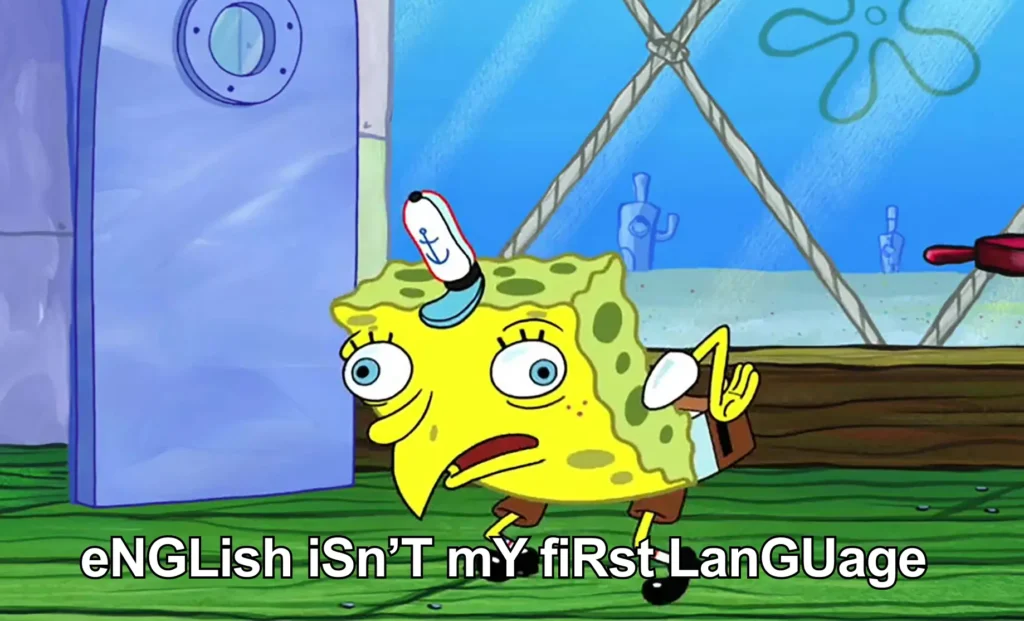
Jordana B., AI Processing Specialist |
December 23, 2024
Crafting Worlds through Imagination
I always had a vivid imagination as a child. When I read novels or watch new television shows or movies, I always get sucked into the story and daydream about what it would be like to live in that fictitious world. Sometimes, I try to imagine what would happen if I could change the plot of the source material or introduce new characters from a different world.
Fueled by my wild imagination and occasional discontent with the source material, I fell in love with fan fiction. Fan fiction (also known as fanfic, fic, or FF) is a genre of fictional stories made by fans about characters that are based on an existing work of fiction (Richard, 2022). These written works are usually posted on social media platforms such as Tumblr, TikTok, and X (formerly Twitter) or sites like Archive of Our Own (AO3) and Fanfiction.net.
Unapologetically Fluent: Fanfic Voices
As an avid reader of fan fiction, I have always encountered fanfic authors writing, “Sorry, English is not my first language” or “Please bear with my fic. English is my second language” in their author’s note. This occurrence has always baffled me because these authors, who identify as “non-native” speakers of English, usually have the best-written fan fiction. This is not an isolated case because recently, I stumbled upon a TikTok video with over 62,000 reactions and 235 comments about the reader’s reactions to authors who say English is not their first language. In this video, the creator (@jordyanti) wrote a caption, saying, “When the author’s note says: ‘Sorry, English isn’t my first language,’” while lip-syncing the sound “Oh could you ate that scrumdilly yum yum my purr purr.” The creator’s point is that when readers encounter an author’s note apologizing because English is not their first language, the fanfic is likely to be good.
So, if the story is going to be good (at least from the perception of readers), why do authors have to apologize for not being a native speaker of English? The root cause could be native speakerism. Tupas (2022) defined native speakerism as a concept that privileges and legitimizes “native” speakers as the standard in all matters concerning the use of English.
This means that “non-native” speakers are treated as people who have a deficient or inferior command of the language compared to “native speakers.” In the case of fan fiction authors who write in English but are not “native” English speakers, the apology in their notes is a manifestation of native speakerism as these authors frame themselves as deficit users of English, needing to apologize for their unique use of English, despite their writing being clear and well-crafted.
The Roots of Native Speakerism
The origin of native speakerism can be traced back to the historical context of English language teaching (ELT) during the colonial period. During this time, English served as a tool of colonialism and a means of assimilation and cultural domination (Tupas, 2022). For instance, colonized subjects (e.g., the Philippines) who use English inevitably transform the language. However, this transformation is often treated as a hazard of transplantation, with the altered language in colonies deemed as deficit and unacceptable.
Over time, the concept of the “native speaker” prevailed in educational policies and practices all over the world. It continues to reinforce structures of inequality and colonial power dynamics. This also manifests in the realm of fanfiction through the author’s notes. Authors who consider themselves “non-native” speakers of English are conditioned to think that their command of English will never be as good as “native” speakers, thereby resulting in the devaluing of their written works. Although the fan fiction is well-written, has a good plot, tropes, and twists, and the author is proficient in English, their works are still devalued. After all, it is implied in their apology that they are not that good in English because it is not their native language.
Praising Non-Native Fanfic Authors
This is why the TikTok video, alongside the responses that come with it, is significant and must be viewed positively. By looking at the comments, it is evident that there is no hate or disappointment for authors who are “non-native” speakers of English. Instead, there is support and admiration for their writings. Many of the replies say that pieces of fan fiction written by “non-native” English speakers are well-written.
TikTok user @chisiyaissohot says, “It’s gonna be the most heart-breaking Shakespeare-like beautiful fanfic ever.” Meanwhile, TikTok user @._chaotic_broski_ says, “They always have either the most heart-wrenching, jaw-dropping, sob-inducing, ‘I can’t do this anymore’ angst, or the most toe-curling, gut-churning [fanfic.]’” Meanwhile, others are teasing these authors for apologizing for something they should not. Like TikTok user @userduck, who wrote, “‘eNGLish iSn’T mY fiRst LanGUage’ and it’s a grammatical masterpiece.’”

Through these comments, it is safe to say that these “non-native” fanfic authors should not apologize for not being native English speakers. Moreover, they should not define themselves (or their works) as something they are not. Instead, they should be proud of themselves because they know other languages besides English. It is also worth noting that this observation does not devalue the works of those “native” users of English. Rather, it attempts to unpack the rooted, harmful language ideologies embedded in the minds of fan fiction authors who consider themselves “non-native” speakers of English.
Redefining Language and Multilingualism
I have always loved fan fiction because, in this realm, everything you can think of is possible, and to think that this world is not safe from the reinforcement of structures of inequality saddens me. Therefore, it is integral for us to start rethinking our mindsets on language ideologies. Our first language should not be treated as an obstacle or limitation when we use or learn other languages. Ultimately, it should never be a source of shame.
This is why translation companies like Lexcode continue to bridge the linguistic gap between clients and their partners or customers. After all, language is not a barrier but an opportunity. Multilingualism is, and should be, the norm. At the end of the day, people are not obliged to apologize for being multilingual speakers of English.
REFERENCES
Anti, J. [@jordyanti]. (2022, December 14). Like girl u bussin out solliloquies. #fanfic #ao3 #writing [Video]. TikTok. https://vt.tiktok.com/ZSLuWkpAX/
Richard, M. (2022, June 25). What is fanfiction in writing? Writer’s Digest. https://www.writersdigest.com/write-better-fiction/what-is-fan-fiction-in-writing
Tupas, R. (2022). The coloniality of native speakerism. Asian Englishes, 24(2), 147–159. https://doi.org/10.1080/13488678.2022.2056797